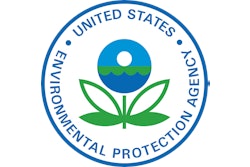
Until Congress is able to reach a federal solution for state-by-state inconsistencies with animal confinement laws, food insecurity is likely to become an even more severe problem in parts of the United States, officers with the National Pork Producers Council (NPPC) said.
During a media briefing on April 8, NPPC President Lori Stevermer talked about the challenges that California’s Proposition 12 are causing the nation’s pork producers. Proposition 12 establishes minimum space requirements based on square feet for breeding pigs, veal calves and egg-laying hens, and bans the sale of meat and eggs from those animals when they are raised in a way that does not comply with the minimum requirements.
But other states have proposed or passed laws that call for similar animal confinement standards. However, those laws may not be consistent with California’s, leaving what Stevermer refers to as a “patchwork” of state laws. And that lack of consistency is both costly and confusing to producers.
In a recent Supreme Court decision, the court decided that Congress needs to find a “federal solution” to the California law, and other similar laws that call for different criteria when it comes to pig housing systems.
“Really, as we talk about that situation, the comments that I hear from producers are ‘we don’t want a patchwork of regulations across the country,’ and so we’re looking to get that federal solution to avoid that patchwork,” she said.
Even before Proposition 12 took effect, it was anticipated that the price of pork would rise in California and elsewhere. Stevermer cited a study by the United States Department of Agriculture (USDA) Office of Economics, which backed up those pre-existing concerns.
“We’re seeing prices of select pork products 20% higher in California now that the (Proposition 12) is in effect versus before Prop 12. We’re also seeing consumption of fresh pork declining 8-10%,” she said.
And that is bothersome, she said, especially for people who are already concerned about food availability and food affordability.
Stevermer said producers whose farms have become compliant with Proposition 12 are concerned about other upcoming state laws that could be different, and the possibility that becoming compliant with yet another law will bring on an even higher cost of production.
That is also a concern for NPPC President-Elect Duane Stateler, who fears those cost increases will be passed on to the consumers who are already struggling to afford meals.
“It ends up reflecting a direct problem for those who can afford food the least. It’s the lowest people on the totem pole where that price increases, and so that makes it into more of a food desert than what we already have in some areas of the United States,” Stateler said.
Bryan Humphries, CEO of the NPPC, said the organization is engaging with members of Congress as they negotiate the upcoming farm bill and a solution for inconsistent animal laws.
“Our goal is that there is not a patchwork of 50 different regulations from across the country, and to ensure that we can provide stability to our producers to do what’s right for their farms and for their animals, and make sure that they can raise those animals in the best way that they know how on their farms,” he said. “There are a lot of options we can take, and that’s why we continue to meet with both the House and the Senate, and with Republicans and Democrats … to navigate and find a bipartisan solution as we move forward.”
During the media briefing, NPPC officials also discussed topics including H5N1, pork plant line speeds and sustainability.















